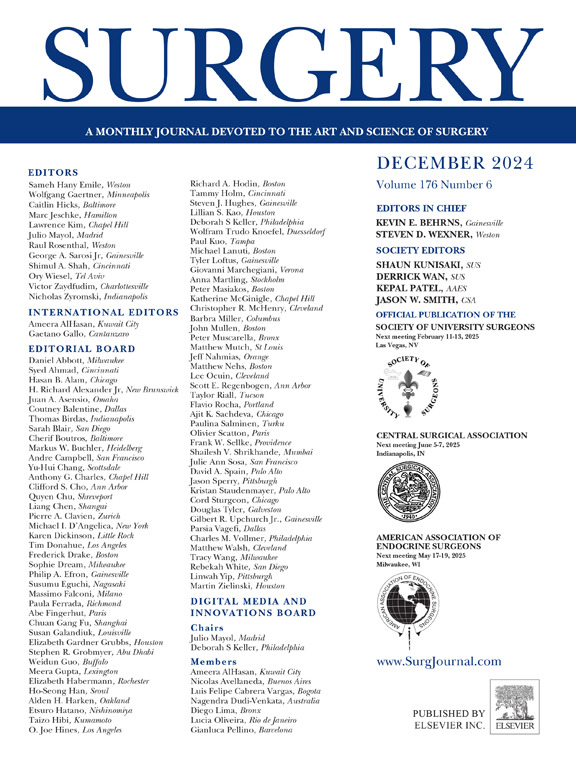Preparing for the “unthinkable”: A call for trauma system preparedness in conflict-vulnerable settings
IF 3.2
2区 医学
Q1 SURGERY
引用次数: 0
Abstract
As global armed conflicts proliferate, the need for trauma care of injured civilians in fragile and conflict-affected settings is rising, but current approaches to providing trauma care are inadequate. The humanitarian community is overstretched, and local health systems are often under-resourced and ill-equipped to handle surges in civilian casualties. In this article, we argue for applying a preparedness lens to this challenge, focusing on opportunities for strengthening trauma systems for conflict-vulnerable populations. Specifically, we review current deficiencies in humanitarian trauma care and advocate for the need to (1) identify countries or subnational regions at risk of future armed conflict; (2) assess trauma system capacities and deficiencies in those locations; and (3) foster partnerships and collaborations with local governing bodies and health care providers to improve education, training, and overall trauma system readiness.
为“不可想象”做准备:呼吁在冲突脆弱环境中做好创伤系统准备
随着全球武装冲突的扩散,脆弱和受冲突影响环境中受伤平民的创伤护理需求正在上升,但目前提供创伤护理的方法还不充分。人道主义社区不堪重负,地方卫生系统往往资源不足,设备不足,无法应对平民伤亡激增。在本文中,我们主张从准备的角度来应对这一挑战,重点关注加强冲突弱势群体创伤系统的机会。具体而言,我们回顾了目前人道主义创伤护理的不足之处,并主张有必要:(1)确定未来有武装冲突风险的国家或次国家地区;(2)评估这些地点创伤系统的能力和不足;(3)促进与地方管理机构和卫生保健提供者的伙伴关系和合作,以改善教育、培训和整体创伤系统准备。
本文章由计算机程序翻译,如有差异,请以英文原文为准。
求助全文
约1分钟内获得全文
求助全文
来源期刊

Surgery
医学-外科
CiteScore
5.40
自引率
5.30%
发文量
687
审稿时长
64 days
期刊介绍:
For 66 years, Surgery has published practical, authoritative information about procedures, clinical advances, and major trends shaping general surgery. Each issue features original scientific contributions and clinical reports. Peer-reviewed articles cover topics in oncology, trauma, gastrointestinal, vascular, and transplantation surgery. The journal also publishes papers from the meetings of its sponsoring societies, the Society of University Surgeons, the Central Surgical Association, and the American Association of Endocrine Surgeons.
 求助内容:
求助内容: 应助结果提醒方式:
应助结果提醒方式:


